Грег Иган - Distress
Здесь есть возможность читать онлайн «Грег Иган - Distress» весь текст электронной книги совершенно бесплатно (целиком полную версию без сокращений). В некоторых случаях можно слушать аудио, скачать через торрент в формате fb2 и присутствует краткое содержание. Жанр: Фантастика и фэнтези, на английском языке. Описание произведения, (предисловие) а так же отзывы посетителей доступны на портале библиотеки ЛибКат.
- Название:Distress
- Автор:
- Жанр:
- Год:неизвестен
- ISBN:нет данных
- Рейтинг книги:3 / 5. Голосов: 1
-
Избранное:Добавить в избранное
- Отзывы:
-
Ваша оценка:
- 60
- 1
- 2
- 3
- 4
- 5
Distress: краткое содержание, описание и аннотация
Предлагаем к чтению аннотацию, описание, краткое содержание или предисловие (зависит от того, что написал сам автор книги «Distress»). Если вы не нашли необходимую информацию о книге — напишите в комментариях, мы постараемся отыскать её.
Distress — читать онлайн бесплатно полную книгу (весь текст) целиком
Ниже представлен текст книги, разбитый по страницам. Система сохранения места последней прочитанной страницы, позволяет с удобством читать онлайн бесплатно книгу «Distress», без необходимости каждый раз заново искать на чём Вы остановились. Поставьте закладку, и сможете в любой момент перейти на страницу, на которой закончили чтение.
Интервал:
Закладка:
We were clear of the built-up center now. There were buildings which looked like factories and warehouses scattered around the tram line, but more and more of the view was becoming bare reef-rock, flat but slightly uneven. The limestone appeared in all the hues I’d seen in the city, zebra-striping the landscape in distinctly ungeological patterns, governed by the diffusion of different subspecies of lithophilic bacteria. The ground here wouldn’t be amenable to rock farming, though; the inner core of the island was too dry and hard, too devascularized. Further out, the rock was much more porous, and suffused with calcium-rich water and the engineered organisms needed to replenish it. The tram lines didn’t run to the coast because the ground became too soft to bear the weight of the vehicles.
I invoked Witnessand started recording; at this rate I’d have more private travelogue footage than material for the documentary, but I couldn’t resist.
I said, "Did you really come here for the light?"
Munroe shook his head. "Hardly. I just had to get away."
"From what?"
"All the noise. All the cant. All the Professional Australians ."
"Ah." I’d first heard that term when I was studying film history; it had been coined to describe the mainstream directors of the nineteen seventies and eighties. As one historian had put it: "They possessed no distinguishing features except for their nationality; they had nothing to say, and nothing to do except foist a claustrophobic vocabulary of tired nationalist myths and icons onto their audience, while loudly proclaiming themselves to be defining the national character, and to represent, in person, a nation finding its voice. " I’d thought this was probably a harsh judgment—until I’d seen some of the films. Most of them were stultifying horse operas—rural colonial melodramas—or sentimentalized war stories. The nadir of the period, though, was probably an attempted comedy in which Albert Einstein was portrayed as an Australian apple farmer’s son, who "splits beer atoms" and falls in love with Marie Curie.
I said, "I always thought the visual arts had grown out of that long ago. Especially in your mode."
Munroe scowled. "I’m not talking about art. I’m talking about the entire dominant culture."
"Come on! There is no dominant culture anymore. The filter is mightier than the broadcaster." At least, that was the net-swoon line; I still wasn’t sure I’d bought it.
Munroe hadn’t. "Very Zen. Try exporting Australian medical biotech to Stateless, and you’ll soon find out exactly who’s in control."
I had no answer to that.
He said, "Don’t you ever get tired of living in a society which talks about itself, relentlessly—and usually lies? Which defines everything worthwhile—tolerance, honesty, loyalty, fairness—as uniquely Australian ? Which pretends to encourage diversity—but can’t ever stop babbling about its national identity ? Don’t you ever get sick of the endless parade of buffoons who claim the authority to speak on your behalf: politicians, intellectuals, celebrities, commentators—defining and characterizing you in every detail… from your distinctive Australian sense of humor right down to your fucking 'collective subconscious iconography'… who are all, simply, liars and thieves?"
I was taken aback for a moment, but on reflection, this was a recognizable description of the mainstream political and academic culture. Or if not the mainstream, at least the loudest. I shrugged. "Every country has some level of parochial bullshit like that going on, somewhere. The US is almost as bad. But I hardly notice it anymore—least of all at home. I suppose I’ve just learned to tune it out, most of the time."
"I envy you, then. I never could."
The tram slid on, displaced dust hissing softly. Munroe had a point: nationalists—political and cultural—who claimed to be the voice of their nation could disenfranchise those they "represented" just as effectively as sexists who claimed to be the voice of their sex. A handful of people pretending to speak for forty million—or five billion—would always wield disproportionate power, merely by virtue of making the claim.
So what was the solution? Move to Stateless? Become asex ? Or just stick your head in a Balkanized corner of the net, and try to believe that none of it mattered?
Munroe said, "I would have thought that the flight from Sydney was enough to make anyone want to leave for good. Physical proof of the absurdity of nations."
I laughed drily. "Almost. Being petty and vindictive with the East Timorese is understandable; imagine dirtying the bayonets of our business partners for all those years, and then having the temerity to turn around and take us to court. What the problem is with Stateless, though, I have no idea. None of the EnGeneUity patents were Australian-owned, were they?"
"No."
"So what’s the big deal? Even Washington doesn’t go out of its way to punish Stateless quite so… comprehensively."
Munroe said, "I do have one theory."
"Yeah?"
"Think about it. What’s the biggest lie the political and cultural ruling class tells itself? Where’s the greatest disparity between image and truth? What are the attributes which any self-respecting Professional Australian boasts about the most—and possesses the least?"
"If this is a cheap Freudian joke, I’m going to be very disappointed."
"Suspicion of authority. Independence of spirit. Nonconformity. So what could they possibly find more threatening than an island full of anarchists?"
13
We walked north from the terminus, across a plane of marbled gray-green, in places still imprinted with faint hints of stubby branched tubing: coral from the shores of a decade ago, incompletely digested. Knowing the time scale made the sight curiously shocking; it was a bit like stumbling across fossils of distinctive forties artifacts—clunky old-model notepads, quaint shoes which had been alpha fashion in living memory—converted into nothing but mineralized outlines. I thought I could feel the rock yielding beneath my feet more than the dense, cured paving of the city, but we left no visible imprints behind us. I paused and crouched to touch the ground, wondering if it would be palpably moist; it wasn’t, but there was probably a plasticized skin beneath the surface to limit evaporation.
In the distance, a group of twenty or so people were gathered around a gantry several meters high, with a large motorized winch beside it. Nearby was a small green bus with big, balloon-tired wheels. The gantry sprouted half a dozen bright orange awnings, and I could hear them snapping in the breeze. Orange cable stretched from the winch to a pulley suspended from the gantry, then dropped straight down— presumably into a hole in the ground, concealed by the circle of spectators.
I said, "They’re being lowered into some kind of maintenance shaft?"
"That’s right."
"What a charming custom. Welcome to Stateless, tired and hungry traveler… now check out our sewers."
Munroe snorted. "Wrong."
As we drew nearer, I could see that everyone in the group was gazing intently at the hole beneath the gantry. A couple of people glanced our way briefly, and one woman raised a hand in a tentative greeting. I returned the gesture, and she smiled nervously, then turned back to the hidden entrance.
I whispered (though we were barely within earshot), "They look like they’re at a mine disaster. Waiting to identify the bodies as they’re raised to the surface."
"It’s always tense. But… be patient."
From a distance, I’d thought people were just randomly, casually dressed, but close-up it was clear that they were mostly in swimming costumes, though some wore T-shirts as well. A few were in short-limbed wetsuits. Some peoples' hair looked distinctively disheveled; one man’s was visibly still wet.
Читать дальшеИнтервал:
Закладка:
Похожие книги на «Distress»
Представляем Вашему вниманию похожие книги на «Distress» списком для выбора. Мы отобрали схожую по названию и смыслу литературу в надежде предоставить читателям больше вариантов отыскать новые, интересные, ещё непрочитанные произведения.
Обсуждение, отзывы о книге «Distress» и просто собственные мнения читателей. Оставьте ваши комментарии, напишите, что Вы думаете о произведении, его смысле или главных героях. Укажите что конкретно понравилось, а что нет, и почему Вы так считаете.
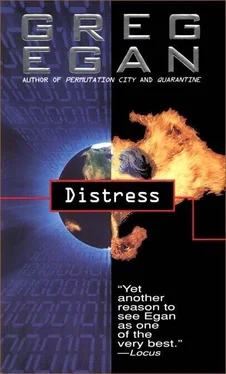



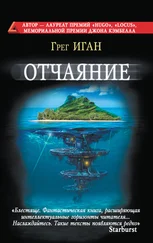
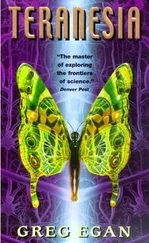
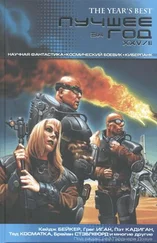

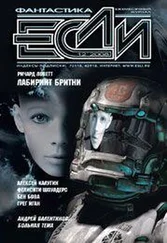
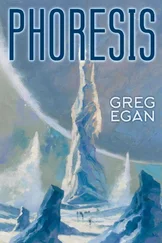
![Грег Иган - Рассказы [компиляция]](/books/419837/greg-igan-rasskazy-kompilyaciya-thumb.webp)
